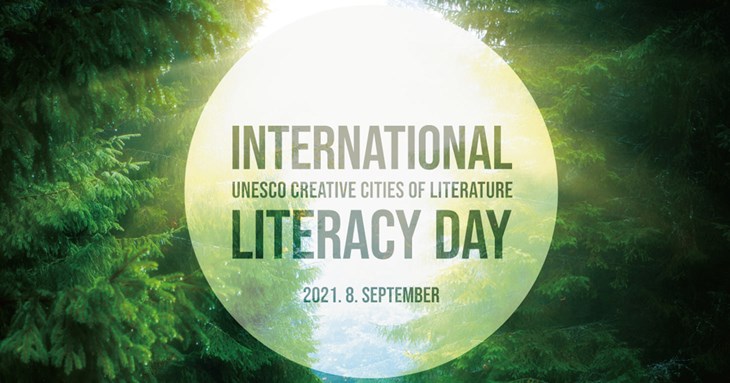Exeter joins UNESCO Cities of Literature for International Literacy Day
Published: 3 September 2021

Exeter is joining other UNESCO Cities of Literature around the world to celebrate International Literacy Day 2021.
Exeter will join eight other Creative Cities of Literature – Manchester, Bucheon in South Korea, Dunedin in New Zealand, Heidelberg in Germany, Kuhmo in Finland, Nanjing in China, Odessa in Ukraine and Ulyanovsk in Russia - to shine a light on International Literacy Day, on Tuesday 8 September.
Each City of Literature marks the day in its own way and aims to reinforce the importance of reading and writing for healthy communities, leveraging the power of words in offering unity and strength during these difficult times.
Exeter will highlight a free bibliotherapy programme launched this summer for the benefit of low-income families who struggle with literacy and reading engagement, either as children, as parents, or both.
The programme was delivered in association with Susan Elderkin from The Novel Cure, to families from Whipton Barton Junior School. Bibliotherapy is a therapeutic approach that uses literature to help people better understand and cope with the world around them.
Anna Cohn Orchard, Director of Exeter City of Literature, said: “Literacy and reading for pleasure open up entire worlds for children and adults.
“Research has shown that reading fiction can reduce feelings of isolation, improve self-confidence, and reduce stress, and we wanted to pass on those benefits to the residents of Exeter.
“The free bibliotherapy programme at Whipton Barton school encouraged parents to develop a stronger, more personal connection to reading, for their own benefit as well as the benefit of their children.”
Gary Read, headteacher at Whipton Barton school, said: “Our families have really embraced bibliotherapy. Their discussions have led them to new books and in some cases, reignited an interest in reading.”
UNESCO Cities of Literature strive to improve literacy every day, in order to enhance life outcomes and wellbeing for their communities.
Literacy is integral to education and life-long learning and allows people to live with dignity. More than just the ability to read and write, literacy enables understanding, communication and decision-making and allows people to stay connected with each other and with communities across the globe.
